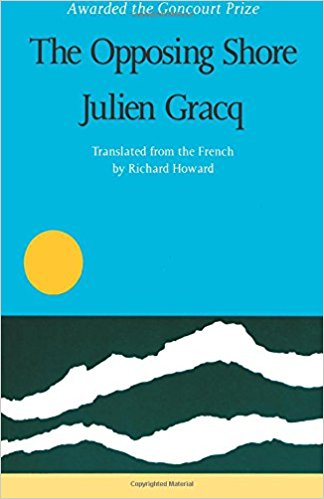We hope you love the books people recommend! Just so you know, The CEO Library may collect a share of sales or other compensation from the links on this page.
This book has 1 recommendation
Nassim Nicholas Taleb (Flaneur)
Until I read this book, Buzzati's "Il deserto dei tartari" was my favorite novel, perhaps my only novel, the only one I cared to keep re-reading through life. This is, remarkably a very similar story about the antichamber of anticipation (rather than "the antichamber of hope" as I called Buzzati's book), but written in a much finer language, by a real writer (Buzzati was a journalist, which made his prose more functional) ; the style is lapidary with remarkable precision; it has texture, wealth of details, and creates a mesmerizing atmosphere. Once you enter it, you are stuck there. I kept telling myself while reading it: "this is the book". It suddenly replaced the "deserto".
A few caveats/comments. First, I read it in the original French Le Rivage des Syrtes (French Edition), not in this English translation, but I doubt that the translator can mess up such a fine style and the imagery. Second, the blurb says Gracq received the Goncourt prize for it. Julien Gracq REFUSED the Goncourt, he despised the Parisian literary circles and by 1951 decided to stay in the margin. He stuck to his publisher José Corti rather than switch to the fancy Gallimard after his success (as Proust did) (or other publishing houses for the fakes and the selfpromoters). Third, this book came out a few years after Buzzati's "deserto", but before Buzzati was translated into French. I wonder if Gracq had heard of the "deserto"; the coincidence is too strong to be ignored.
Amazon description
With four elegant and beautifully crafted novels Julien Gracq has established himself as one of France's premier postwar novelists. A mysterious and retiring figure, Gracq characteristically refused the Goncourt, France's most distinguished literary prize, when it was awarded to him in 1951 for this book. As the latest work in the Twentieth-Century Continental Fiction Series, Gracq'a masterpiece is now available for the first time in English.
Set in a fictitious Mediterranean port city, The Opposing Shore is the first-person account of a young aristocrat sent to observe the activities of a naval base. The fort lies at the country's border; at its feet is the bay of Syrtes. Across the bay is territory of the enemy who has, for three hundred years, been at war with the narrator's countrymen; the battle has become a complex, tacit game in which no actions are taken and no peace declared. As the narrator comes to understand, everything depends upon a boundary, unseen but certain, separating the two sides.
Besides the narrator there are two other main characters, the dark and laconic captain of the base and a woman whose compex relations to both sides of the war brings the narator deeper into the story's web. For many French readers The Opposing Shore (published as Le rivage des Syrtes ), with its theme of transgressions and boundaries, spoke to the issue of defeat and the desire to fail: a paticularly sensitive motif in postwar French literature. But there is nothing about the novel tying it either to France or to the 1950s; in fact, Gracq's novel, with its elaborate, richly detailed prose, will be of greater interest now than at any point in the last twenty years.
Get this book on Amazon | Barnes & Noble | Book Depository



